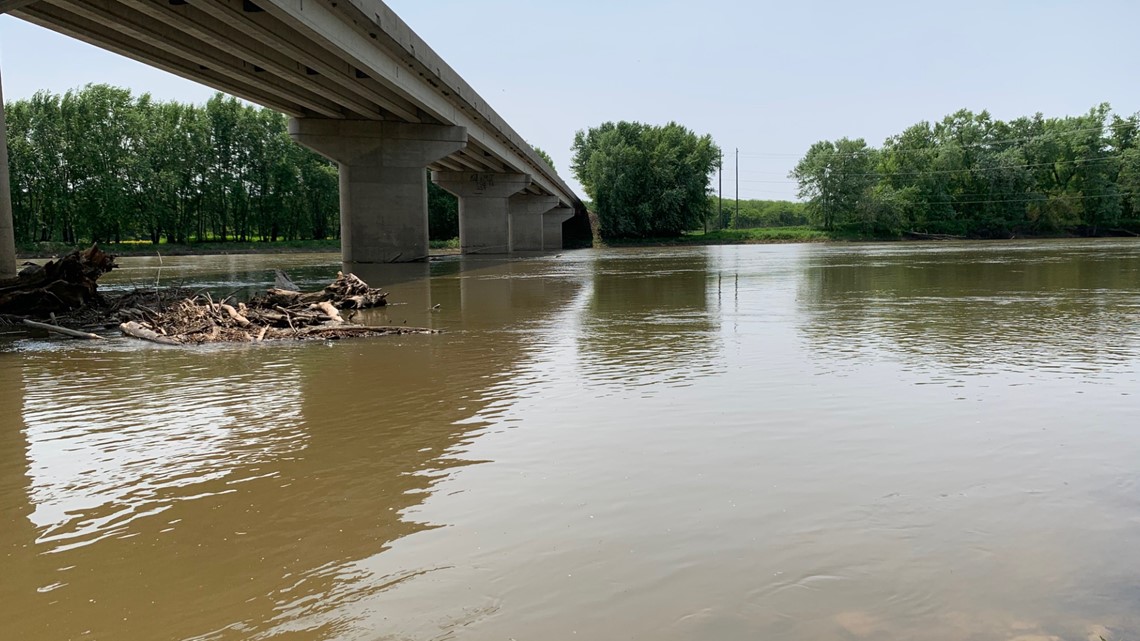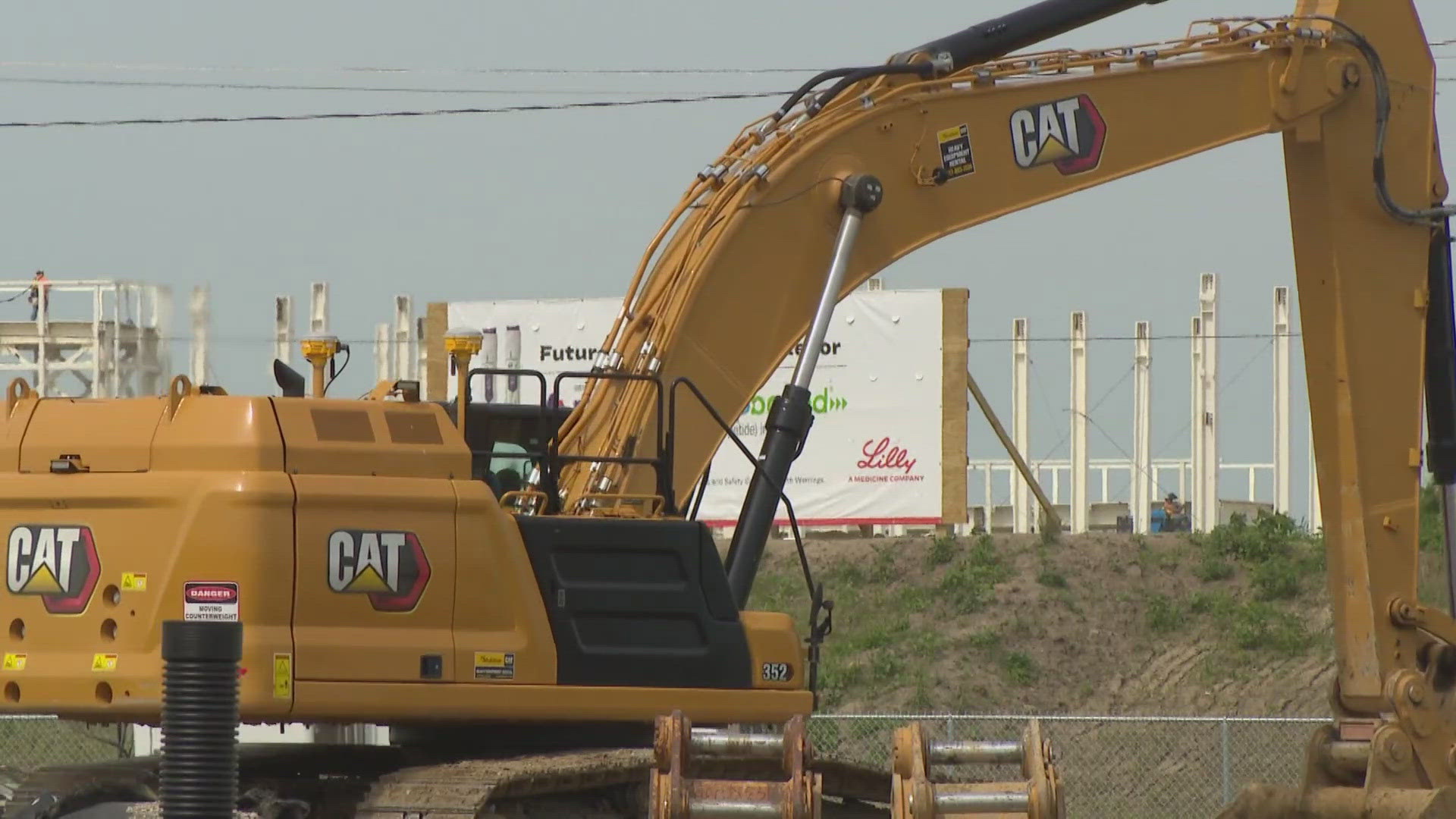LEBANON, Ind. — Jonathan Dison and his family have lived in their home in the country on the outskirts of Lebanon for nearly a decade. But when a massive, high-tech business park began going up just down the road, Dison knew it was time to move.
"On any given day, there could be a truck every 30 seconds going by," said Dison.
Because of the location of his property, Dison said the only option he had was to list his house commercially.
"And we did have a buyer lined up earlier this year," he said. "Unfortunately, they backed out because of the water woes."
Water woes - as in not enough of it.
"What that means for us is we're stuck here," he said.
Lebanon Mayor Matt Gentry acknowledged to 13News that until the city finds some additional water source, growth in the city is on pause.
"Just where Lebanon is from a geographical standpoint, this is a challenge for us," said Gentry. "We straddle two different watersheds. Water runs away from us."
13News reported more than a year ago that state economic development officials were looking into a plan to build a pipeline that would bring water from an underground aquifer in Tippecanoe County down to Lebanon to provide water for the LEAP district. But when Tippecanoe County citizens and community leaders objected - concerned about their own water supply needs - the plan was put on pause until a state study could be finished.


Construction on a $9 billion dollar Eli Lilly manufacturing facility in the LEAP district is not impacted. That's because it was able to reserve what was left.
But Gentry said water isn't just needed for any new development in the LEAP district. Plans for hundreds of nearby homes are on hold. And publicly available documents also show Meijer purchased property on the north side of the city, but a company spokesperson told 13News it currently has no timeline to build.
According to our newsgathering partners at the Lebanon Reporter, city leaders are negotiating with Indiana American Water and Citizens Energy Group to pipe in more water. Once an agreement is reached, it would take 24-40 months or more to build out infrastructure.
The city could also reduce the need for water capacity for each household. Currently, Gentry said the city overestimates that number which leaves some wiggle room to adjust.
"I completely understand why people might think, 'Why didn't you secure water before you did this?'" said Gentry, referring to the LEAP district and other development projects. "The problem is, securing water is extremely costly."
Gentry said local leaders were alerted to the need for additional water about 20 years ago. He said leaders more recently saw the LEAP district as a way to partner with the state to pay for a solution rather than invest alone and leave ratepayers with significantly higher water bills. He also added other communities should be watching how the situation plays out in his community.
"I think this is a glimpse into their future, unless we can come together regionally and think about how we solve this for the long term," said Gentry.
A 2014 study by the Indiana Chamber of Commerce found water north of the Wabash River is "relatively abundant." Central Indiana had "marginal supplies" and "although utilities have identified the need and taken initial steps, supplies are limited and, without new sources, economic growth is at risk."
Six years later, a state-commissioned study found central Indiana would need to withdraw almost 30% more water in 50 years than it does today. Half of it will be needed for public drinking water supplies in Indianapolis and nine surrounding counties.
So what are local water utilities doing to prepare?
Citizens Energy told 13News it has identified "some unique and cost-effective water solutions." That includes converting a former limestone quarry next to Geist Reservoir into a the 3-billion-gallon "backup reservoir."
The company has also built additional pipelines to move water to where it's needed.
Dison said he hopes Lebanon can figure it out soon.
"I hope they get the water situation figured out and they can give potential developers confidence that there's going to be water for whatever they want to develop, so we can move on with our lives," he said.

